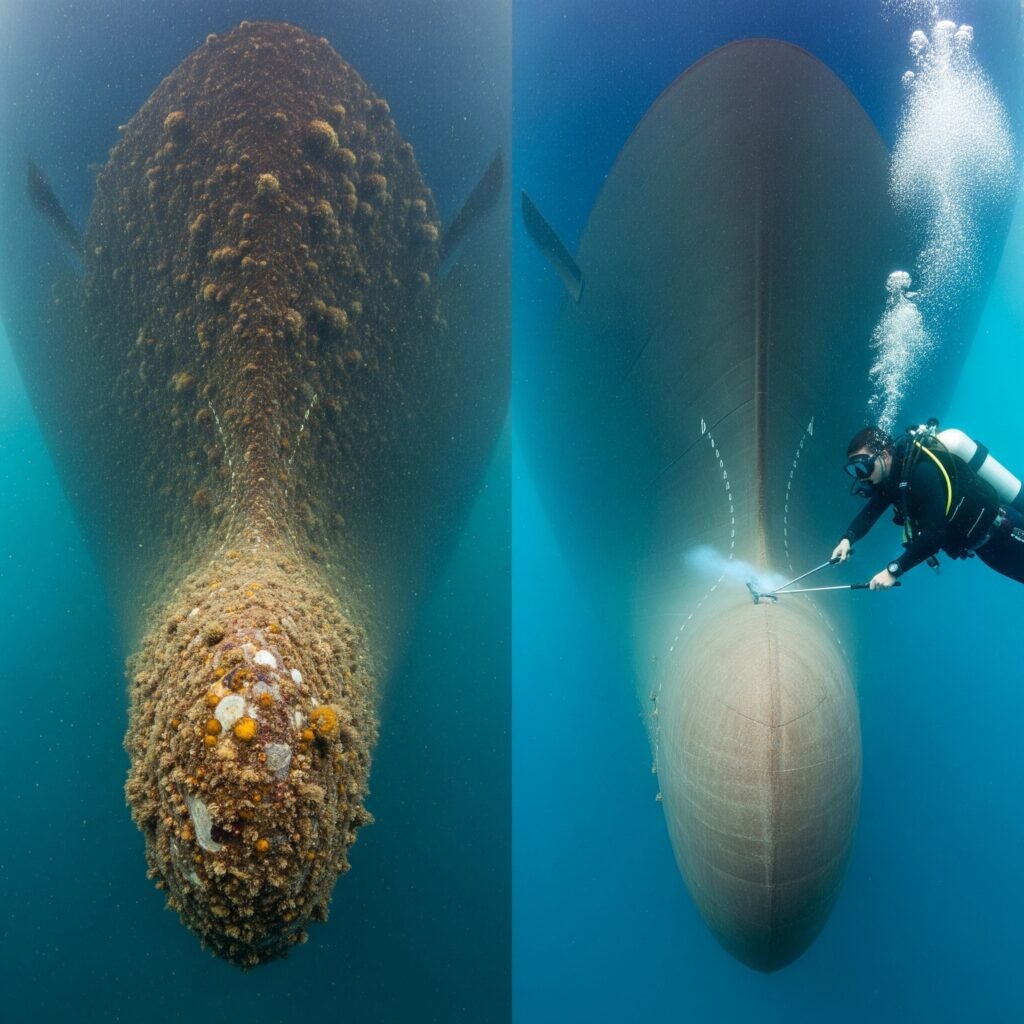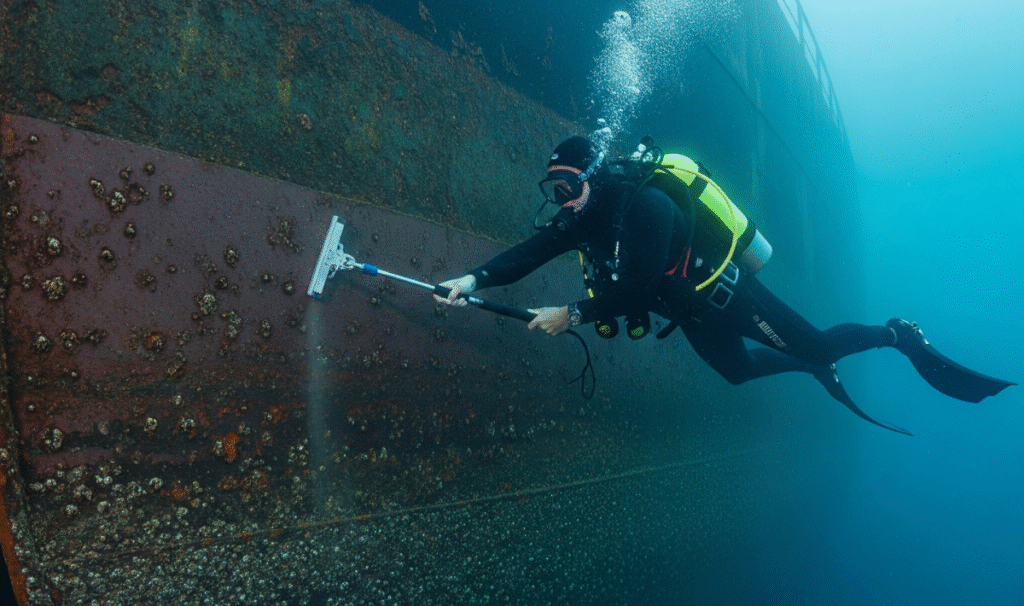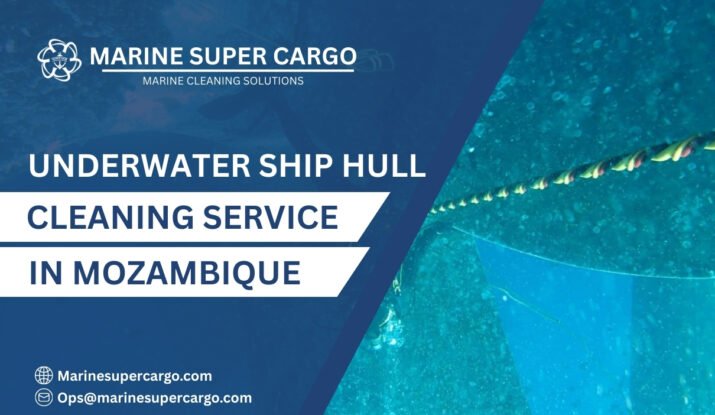Picture the vast coastline of Mozambique, where shimmering Indian Ocean waves brush against golden sands and busy ports like Maputo buzz with maritime trade. Beneath this picture-perfect surface, though, lies an unseen challenge for every vessel: the slow, relentless grip of biofouling. This natural buildup of algae, barnacles, and marine organisms clings to hulls, robbing ships of their speed and efficiency. To fight back, savvy shipowners turn to underwater ship hull cleaning in Mozambique—a vital practice with clear, proven benefits. Here’s why it matters more than ever.
Mozambique’s position on the southeastern coast of Africa exposes its ports and vessels to warm, nutrient-rich waters ideal for marine growth. In this environment, underwater ship hull cleaning in Mozambique isn’t just routine maintenance—it’s a strategic necessity for keeping vessels performing and compliant with environmental standards.
What Is Underwater Ship Hull Cleaning in Mozambique and Why Is It Needed?
Biofouling Explained: The Growth That Slows Ships
Biofouling occurs when microorganisms, algae, plants, or marine animals attach themselves to submerged surfaces, most commonly ship hulls. Over time, this buildup creates a rough, uneven surface that significantly increases drag as vessels move through the water. The added resistance forces engines to work harder, leading to higher fuel consumption, increased emissions, and greater operational costs. Beyond performance losses, biofouling can also damage hull coatings and accelerate corrosion, making it a silent yet costly challenge for shipowners and global maritime operations.
Unique Marine Conditions in Mozambique
The combination of warm tropical waters, strong currents, and rich biodiversity along Mozambique’s coast leads to rapid biofouling growth. Frequent port stays and variable ship speeds further accelerate buildup, making regular underwater ship hull cleaning in Mozambique a priority.

Boosting Fuel Efficiency and Reducing Operational Costs
How Clean Hulls Improve Speed and Save Fuel
A clean hull moves smoothly through water, minimizing drag and maximizing efficiency. Studies referenced by imo.org show that effective underwater ship hull cleaning can reduce fuel consumption by up to 15%, significantly lowering emissions and fuel costs for ships operating in Mozambique.
Impact on Shipping Schedules and Budgets
More efficient vessels mean more reliable timetables and fewer delays. Stockholders and clients benefit from this reliability, while the shipowners enjoy direct savings on one of the largest operational expenses—fuel.
Extending Vessel Life and Minimizing Repairs
Preventing Corrosion and Coating Damage
Biofouling traps moisture and accelerates hull corrosion, damaging protective coatings and weakening the vessel’s structure. Routine underwater ship hull cleaning in Mozambique prevents this by maintaining the integrity of the hull’s surface, delaying deterioration.
Early Detection of Hull Problems Through Routine Cleaning
Routine underwater ship hull cleaning in Mozambique does more than remove marine growth—it also serves as a valuable inspection process. During cleaning, divers or robotic systems can identify early signs of cracks, coating deterioration, or corrosion that might otherwise go unnoticed. Addressing these issues promptly helps shipowners avoid expensive emergency dry-docking and unexpected downtime. Proactive maintenance not only extends the vessel’s service life but also ensures safer, more efficient operations. By combining cleaning with inspection, ship operators gain both performance and long-term protection for their investment.
Ensuring Environmental and Regulatory Compliance
MARPOL, IMO, and Mozambique’s Maritime Regulations
Mozambique adheres to international conventions such as MARPOL and IMO regulations to protect marine environments. Proper hull cleaning following these guidelines is essential to avoid fines, detentions, and uphold green shipping commitments.
Protecting Mozambique’s Fragile Marine Ecosystem
With rich coral reefs and coastal biodiversity, protecting waters from invasive species and pollutants during cleaning is critical. Modern underwater ship hull cleaning in Mozambique uses eco-friendly techniques to ensure marine life remains unharmed.
How Underwater Ship Hull Cleaning Is Performed in Mozambique
Diver-Based Cleaning and Its Advantages
Experienced divers equipped with specialized tools carefully remove fouling without damaging hull coatings. This adaptable approach suits varied vessel sizes and hull types seen along Mozambique’s coast.
Emerging Robotic and Automated Technologies
Robotic cleaners and remotely operated vehicles (ROVs) enhance cleaning efficiency and safety, especially for large vessels or in difficult conditions, and are gradually being adopted in Mozambique’s ports.
Choosing the Best Affordable Hull Cleaning Provider in Mozambique
Certifications, Safety, and Environmental Standards
Select providers with IMCA certification and demonstrated compliance with IMO and MARPOL standards. Check for safety records, eco-friendly practices, and trained personnel familiar with local conditions.
Transparency and Customer Satisfaction
Look for clear pricing, documented work reports, and positive customer testimonials to ensure a trustworthy, affordable service.

Future Outlook: Innovations and Sustainability in Mozambique’s Hull Cleaning
The future of underwater ship hull cleaning in Mozambique is being shaped by cutting-edge technology and sustainability goals. Artificial intelligence is enhancing inspection accuracy, enabling predictive maintenance that reduces downtime and costs. Meanwhile, autonomous robotic cleaners are revolutionizing efficiency and safety, minimizing the need for divers while delivering precise results. Additionally, bio-inspired and eco-friendly hull coatings are emerging as powerful tools to combat biofouling while protecting marine ecosystems. As Mozambique embraces these innovations, shipowners can look forward to cleaner, faster, and greener operations, setting a strong foundation for sustainable maritime growth in the region.
Conclusion
For vessels operating in Mozambique’s dynamic waters, regular underwater ship hull cleaning in Mozambique is not a choice—it’s a necessity. Clean hulls deliver measurable benefits, including reduced fuel consumption, enhanced vessel performance, extended coating life, and assured compliance with environmental regulations. These advantages translate into smarter, greener, and more profitable maritime operations. By partnering with trusted professionals like CleanShip.co, shipowners in Mozambique can safeguard efficiency, protect marine ecosystems, and secure long-term success. In today’s competitive shipping industry, proactive hull cleaning is the key to sustainable growth and reliable performance.
FAQ:
Q1. How often should underwater ship hull cleaning be performed in Mozambique?
Typically, every 6–12 months, though higher fouling rates may necessitate more frequent cleaning.
Q2. Are robotic hull cleaning systems available in Mozambique?
Yes, although diver-led cleaning remains prevalent, robotic technologies are gradually being incorporated.
Q3. What environmental regulations apply to hull cleaning in Mozambique?
Mozambique adheres to MARPOL and IMO guidelines, with local enforcement ensuring responsible practices.
Q4. Can regular hull cleaning extend the life of my vessel?
Definitely. Cleaning prevents corrosion by maintaining hull coatings, thus extending vessel lifespan.
Q5. How do I select a reliable hull cleaning company in Mozambique?
Verify IMCA certification, ensure compliance with IMO/MARPOL, request references, and confirm transparent pricing.


